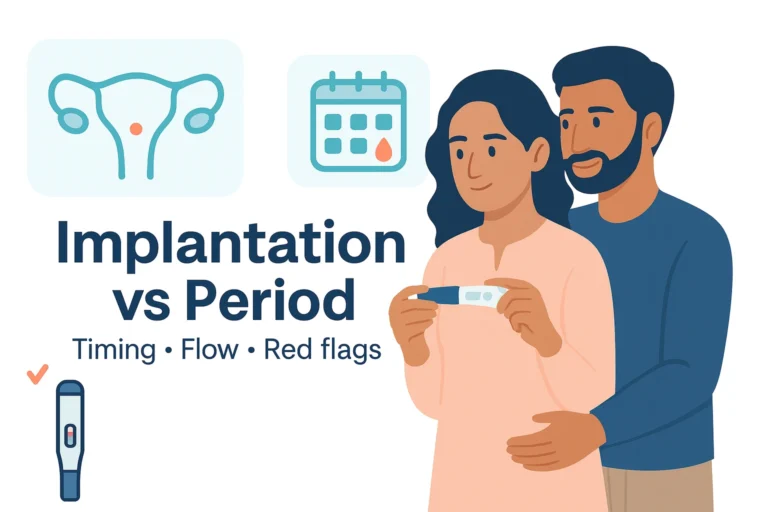Learn about Dexona Injection, including its uses, side effects, and alternatives during pregnancy. Find out what you need to know and get expert guidance to ensure a safe pregnancy.
Pregnancy is a life-changing experience, and ensuring the health of both the mother and the baby is critical. One topic that frequently comes up during this time is the use of medications, particularly Dexona Injection. In this comprehensive guide, we will look at Dexona Injection, its uses, and safety concerns, as well as alternative options for pregnant women. Our priority during pregnancy is your health, and this article aims to provide you with useful information and guidance.
What is Dexona injection?

Dexona injection contains dexamethasone, a corticosteroid with anti-inflammatory and immunosuppressive properties. It is used to treat inflammatory conditions such as arthritis, asthma, and skin disorders. Dexona is also used to treat severe allergic reactions and autoimmune diseases such as lupus and as an anti-inflammatory agent in cancer treatment. It aids in the reduction of inflammation and immune responses in respiratory conditions and organ transplant scenarios.
However, due to potential side effects and individualized dosages, Dexona should only be used under medical supervision. Before taking Dexona or any other medication, always seek the advice and assessment of a healthcare professional.
What is Dexona injection used for?
Dexona injection, which contains the corticosteroid dexamethasone, is used for a variety of medical conditions. It is an effective treatment for conditions characterized by inflammation and immune system responses. This medication is used in a variety of medical situations. It is used to treat inflammation in autoimmune diseases such as rheumatoid arthritis, as well as to treat allergic reactions such as anaphylaxis. Dexona can help reduce airway inflammation in severe asthma exacerbations.
It is additionally used to treat severe skin conditions such as psoriasis and to lessen the side effects of chemotherapy in cancer treatment. Because of its immunosuppressive properties, Dexona is also useful in organ transplant cases. It can treat brain swelling as well as a variety of other medical conditions, demonstrating its versatility in the medical field. However, because of the possibility of side effects, its use should be closely monitored, and patients should always follow the advice of their healthcare provider.
Is Dexona injection safe to use during pregnancy?
Dexona injection (dexamethasone) use during pregnancy should be carefully considered and discussed with a healthcare professional. While corticosteroids such as dexamethasone can be prescribed during pregnancy in certain circumstances, the decision to use them should be based on a careful evaluation of the potential benefits versus the risks to both the pregnant woman and the developing fetus.

Dexona may be prescribed during pregnancy in some cases when the benefits of controlling a medical condition (such as severe asthma or autoimmune disorders) outweigh the risks. However, the following factors must be taken into account:
Risk to the Fetus: Corticosteroids, such as Dexona, can cross the placenta and have an impact on fetal development. Use at high doses or for an extended period during pregnancy may increase the risk of certain birth defects.
Maternal Health: An important factor to take into account is the pregnant person’s health. It may be deemed necessary if the mother’s health is in danger as a result of a medical condition that Dexona can successfully treat.
Gestational Age: Taking Dexona while pregnant could also be important. Since most major organ development is finished during the second and third trimesters, it is generally thought to be safer to use such medications during those times.
Alternative Options: Before recommending Dexona, medical professionals will look into alternative therapies that might be safer during pregnancy.
To assess the specific situation and decide whether to use Dexona or any medication during pregnancy, pregnant people need to have honest and thorough discussions with their healthcare providers. To ensure the health and well-being of the mother and the unborn child, the healthcare provider will consider the potential risks and benefits and choose the best course of action. It is strongly advised against self-administering any medication, including Dexona, during pregnancy without consulting a doctor.
What are the risks of using Dexona injection during pregnancy?
Dexona injection, which contains dexamethasone, can have risks when used during pregnancy. These risks should be carefully considered and discussed with a medical professional. Using Dexona while pregnant carries several potential risks, including:
Increased Risk of Birth Defects: Dexamethasone use in high or prolonged doses during pregnancy may be linked to an increased risk of specific birth defects. These flaws can be skeletal malformations, heart abnormalities, or cleft lip and palate. Using corticosteroids during the first trimester, when the fetus’s organs are developing, seems to increase the risk.
Preterm Birth: The risk of preterm birth (delivery of the child before 37 weeks of gestation) may rise with prolonged or high-dose corticosteroid use. Numerous health issues for the newborn can result from preterm birth.
Low Birth Weight: Low birth weight in babies born to mothers who used corticosteroids during pregnancy may be more common. Baby health issues can result from low birth weight.
Maternal Side Effects: The use of dexona during pregnancy may also have negative effects. Increased blood pressure, gestational diabetes, and other issues could result from it, which could have an impact on the mother’s health throughout the pregnancy.
Suppression of the Fetal Immune System: Dexamethasone may impair a fetus’s capacity to fight infections after birth by suppressing the fetal immune system.
It’s important to remember that the risks of taking Dexona while pregnant can change depending on several variables, including the dosage, length of the course of treatment, and the particular medical condition being treated. Healthcare professionals carefully weigh the risks and benefits of each potential treatment option before deciding which to recommend.
Before recommending the use of Dexona, medical professionals frequently look into safer alternatives to the medication. When using Dexona or any other medication during pregnancy, women should weigh the potential risks against the benefits in open and honest discussions with their healthcare professionals to make the best choice for their particular situation.
When is Dexona injection used during pregnancy?

When there are no safer alternative treatments available and the potential benefits of using the medication outweigh the potential risks, dexona injection (dexamethasone) is typically used during pregnancy. In the following specific circumstances, healthcare providers may think about prescribing Dexona while pregnant:
Management of Severe Allergic Reactions: Dexona can be used to reduce inflammation and swelling quickly in cases of severe allergic reactions (anaphylaxis) when other treatments have failed to control the reaction. This can be life-saving for both the pregnant woman and the fetus.
Management of Severe Asthma: Dexona may be used to reduce airway inflammation and improve breathing in pregnant women who experience severe asthma exacerbations that do not respond well to other medications and pose a serious risk to their health and the health of the unborn child.
Autoimmune Diseases: When the condition is severe and unresponsive to other therapies, Dexona may be considered for pregnant women with autoimmune diseases like lupus or specific types of arthritis. Controlling the autoimmune response and reducing the chance of flare-ups that might be harmful to the mother and fetus are the objectives.
Fetal Lung Development: When there is a chance of a preterm birth, Dexona may occasionally be used to aid in promoting the fetal lungs’ development. Normally, only in circumstances where the advantages of enhancing the baby’s lung development outweigh the possible risks, is this use permitted.
The choice to use Dexona while pregnant should always be made in consultation with a healthcare professional, it is important to stress. The healthcare professional will carefully evaluate the patient’s particular medical condition, the gravity of the circumstance, and the potential risks and advantages of using Dexona for both the expectant mother and the growing fetus. Dexona is typically saved for circumstances where it is deemed necessary to protect the health and well-being of the mother and the baby. In most cases, alternative treatments that are thought to be safer during pregnancy will be investigated first.
What are the alternatives to Dexona injection during pregnancy?
Inflammation, allergies, and autoimmune diseases are just a few of the conditions that are treated with dexamethasone, a corticosteroid. Additionally, it is used to help premature babies’ lungs develop. Dexamethasone, however, is not recommended for use during pregnancy because it can cross the placenta and harm the unborn child.
The following are some pregnancy-safe substitutes for Dexona injection:
Betamethasone: Another corticosteroid, this one is used to help premature babies’ lungs develop. When used during pregnancy, it is thought to be safer than dexamethasone.
Beclomethasone: Asthma and other respiratory conditions are treated with this inhaled corticosteroid. Although it is thought to be safer, it is not as effective as dexamethasone for lung maturation.
Fluticasone: This is yet another corticosteroid that is inhaled and used to treat respiratory conditions like asthma. Although it is thought to be safer, dexamethasone is not as effective as it is at maturing the lungs.
Before selecting the best drug for you, your doctor will consider the advantages and disadvantages of each option. The risks and advantages of each medication should be discussed with your doctor if you need to take a corticosteroid while pregnant.
Here are some additional considerations:
- The risks of using corticosteroids during pregnancy are greatest during the first trimester.
- When the mother is at high risk of premature labor, the benefits of using corticosteroids during pregnancy outweigh the risks.
- Corticosteroids can cause side effects in the baby, such as low birth weight, delayed growth, and eye problems.
If you are pregnant and have any questions or concerns about using corticosteroids, consult your doctor.
What should I discuss with my doctor before using Dexona injection during pregnancy?

Before using Dexona injection during pregnancy, discuss the following with your doctor:
- Your medical history, including any medications you are currently using.
- The reason you require a Dexona injection.
- The benefits and risks of using Dexona injection during pregnancy.
- Alternative medications are available.
- Dexona injection dosage and frequency.
- The potential Dexona injection side effects for you and your baby.
- How to keep an eye on your baby for any Dexona injection side effects.
It is important to remember that Dexona injection is not recommended during pregnancy, but it may be required in some cases. Your doctor will weigh the risks and benefits of a Dexona injection to determine the best course of action for you and your baby.
Here are some more questions you should ask your doctor:
- What are the symptoms of side effects in myself and my baby?
- How frequently should I see my doctor for checkups?
- What are my baby’s long-term effects of Dexona injection?
- Are there any other medications I should avoid while taking Dexona injections?
- What steps can I take to reduce the possibility of side effects?
It is essential to be an active participant in your healthcare and to ask questions about any medications you are taking.
Conclusion: Dexona Injection
To summarise, using Dexona injection (dexamethasone) during pregnancy is a complex and well-considered decision that should be made in consultation with a healthcare provider. While Dexona may be useful in certain medical situations during pregnancy, the risks to the developing fetus must be balanced against the benefits to the pregnant woman.
Alternative treatments should be considered whenever possible, and Dexona should be used with caution, at the lowest effective dose, and for the shortest duration possible. Regular monitoring and open communication with a healthcare provider are required to ensure the health of both the mother and the baby throughout treatment. Finally, the decision to use Dexona during pregnancy should prioritize the health and safety of both the pregnant woman and the unborn child.
Latest Post:
- Understanding Hatching Blastocyst Twins
- 10 Best Fertility Foods to Boost Your Chances of Getting Pregnant
- When is a female most likely to be fertile?
- What are the 4 types of PCOS: Symptoms and Treatment
- Does metformin increase fertility?








